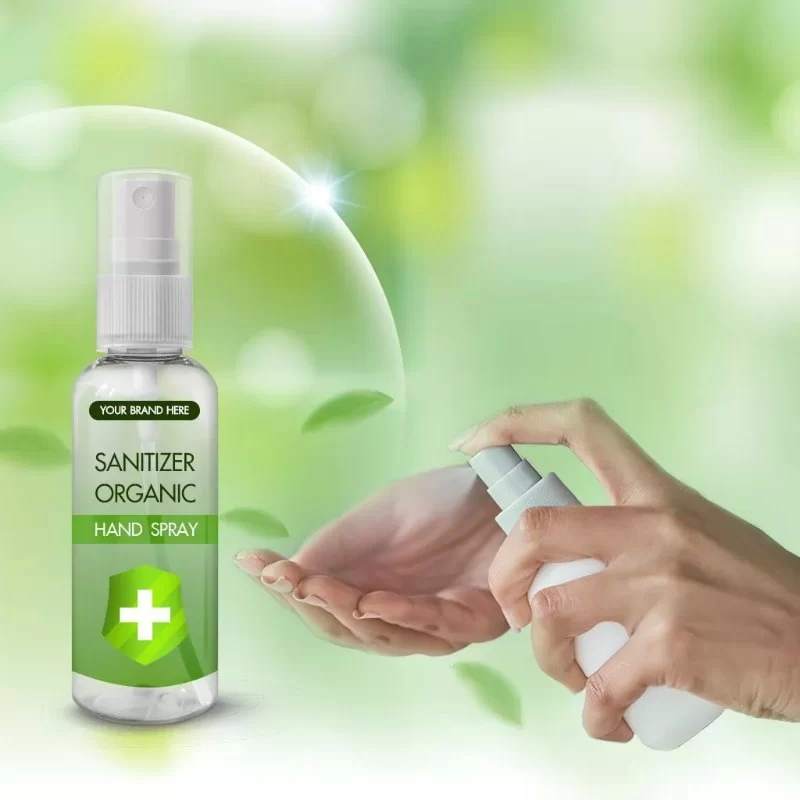- 1 - Understanding Body Spray vs Sanitizer
- 2 - Why Body Spray Isn’t a Substitute for Sanitizer
- 3 - The Science of Alcohol Content in Body Spray
- 4 - Real-Life Stories and Misconceptions
- 5 - Safe Alternatives for Hand Hygiene
- 6 - Protecting Your Health Smartly
1. Understanding Body Spray vs Sanitizer
At first glance, body spray and hand sanitizer may seem similar. Both often contain alcohol, both are applied in a mist, and both can leave a cooling sensation on the skin. But the purpose of each is vastly different. Body sprays are cosmetic products designed to add fragrance, while sanitizers are medically formulated to kill germs. This difference in function is critical when asking: can body spray be used as sanitizer?
2. Why Body Spray Isn’t a Substitute for Sanitizer
The main reason body spray cannot safely replace sanitizer lies in its formulation. While sanitizers are regulated by agencies like the FDA to ensure they contain at least 60% alcohol for germ-killing effectiveness, body sprays prioritize fragrance and cosmetic appeal. They often include oils, perfumes, and other additives that may smell pleasant but do not effectively kill bacteria or viruses. In fact, spraying body spray on your hands repeatedly could dry your skin without offering protection against harmful germs.
3. The Science of Alcohol Content in Body Spray
Most body sprays do contain alcohol, but the type and concentration matter. Isopropyl alcohol or ethanol in sanitizers is carefully measured to disinfect surfaces and skin. In body sprays, alcohol acts mainly as a solvent to carry fragrance and evaporates quickly. Its concentration is usually lower than the threshold required for disinfection. Even if a body spray has a noticeable alcohol base, it is not tested for effectiveness against microbes. That makes it unreliable as a sanitizer substitute.
4. Real-Life Stories and Misconceptions
During the height of the COVID-19 pandemic, some people found themselves without sanitizer and resorted to creative solutions. A popular misconception on social media was that using body spray as a hand disinfectant was acceptable. One viral post showed a college student using his deodorant body spray before shaking hands at a party. While the post got laughs, it also highlighted the risks of misinformation. Many dermatologists quickly warned against this practice, emphasizing that body sprays were never designed for microbial protection.
Similarly, Sarah, a retail worker, admitted that she tried using her body spray when her sanitizer ran out. She noticed her hands felt sticky and irritated after several uses but still worried whether she was truly protected. Her story is one of many that demonstrate how important it is to rely on proven, safe products when it comes to hygiene.
5. Safe Alternatives for Hand Hygiene
If you ever find yourself without sanitizer, there are better solutions than reaching for body spray. Washing your hands with soap and water for at least 20 seconds remains the gold standard. If soap and water are not available, sanitizers with 60–70% alcohol are the next best option. Some people even make DIY hand sanitizers with alcohol and aloe vera, though care must be taken to follow recommended recipes. At no point, however, should cosmetic sprays replace scientifically tested disinfectants.
If you’re looking for reliable personal care products that balance fragrance and safety, consider exploring options at Scent Snob. They offer high-quality products crafted with both performance and user experience in mind.
6. Protecting Your Health Smartly
The bottom line is that while body spray may smell refreshing, it is not designed or tested to kill germs. Asking “can body spray be used as sanitizer?” reveals a common misconception that could compromise your health. Always choose trusted sanitizers or handwashing methods to stay protected. Body sprays are best reserved for their intended purpose: keeping you smelling fresh and confident.


0 comments